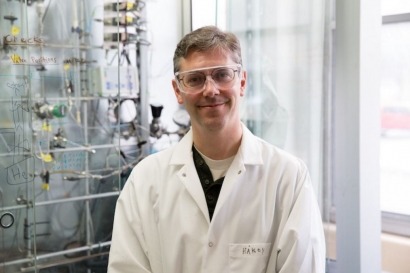
“This breakthrough shows how biomass-derived commodity chemicals can economically be used to replace petroleum-derived products,” says George Huber, Harvey D. Spangler Professor in chemical and biological engineering at UW-Madison and an affiliate of the Wisconsin Energy Institute.
Huber and his collaborators reported a new chemical pathway used to produce 1,5-pentanediol, a plastic precursor primarily used to make polyurethanes and polyester plastics. Their approach is six times cheaper than a previously reported method, and represents the first economically viable way of producing 1,5-pentanediol from biomass.
The discovery provides fundamental chemistry that could be applicable to a wide cross-section of products. For instance, the same pathway could be used to produce two other plastic precursors — 1,4 butanediol and 1,6-hexanediol — currently derived from petroleum and which together represent an annual market of more than $6 billion.
The Wisconsin Alumni Research Foundation (WARF) is in charge of licensing the technology.
“We’ve had companies asking more about this exciting way to economically produce a valuable chemical from sustainable sources,” says Leigh Cagan, WARF’s chief technology commercialization officer. “Professor Huber’s published work will bring us closer to engaging with industrial partners to commercialize this technology.”
Photo caption: For information: George Huber and a team of collaborators developed a renewable way of producing a highly valuable commodity chemical from biomass. The development has the potential to reduce the use of petroleum in making plastics and improve the economics of cellulosic ethanol. Photo by: James Runde
For additional information:

